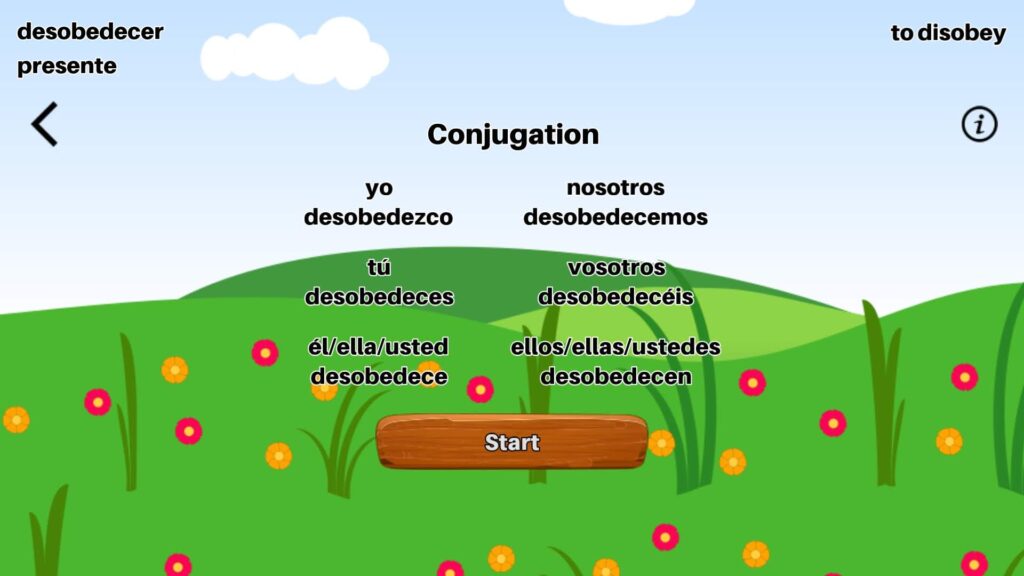Hello, Spanish language rebels! Today, we’re embracing our inner rule-breaker with “desobedecer,” which means “to disobey.” Perfect for all those moments when you just have to bend the rules a little—or a lot! 😈
📖 What Does “Desobedecer” Mean?
Desobedecer: To disobey, defy, or go against the rules. It’s the verb we use when someone decides to do their own thing, whether it’s ignoring a curfew or sneaking that extra piece of cake.
Example: Los niños desobedecen las reglas a veces. (Children sometimes disobey the rules.)

🔄 The Subjunctive Plot Twist
In the subjunctive mood, “desobedecer” gets a sneaky little twist! The stem changes to desobedezc-. It’s like the verb itself decided to disobey the usual patterns. Just when you thought you had it figured out, it pulls a fast one!
Example: Espero que no desobedezcan las instrucciones.
(I hope they don’t disobey the instructions.)
😜 Why Is This Fun?
“Desobedecer” reminds us that sometimes the best stories come from a little disobedience. Whether it’s a daring adventure, a funny misunderstanding, or just ignoring your own advice, this verb captures that rebellious spirit.
Quick Fact: The subjunctive is used for wishes, doubts, or hypothetical situations. So, when you’re hoping someone doesn’t disobey, you’re in subjunctive territory!
🎉 Sentence Practice:
- Aunque nos pidieron que nos quedáramos en casa, desobedecimos y fuimos a la playa.
(Even though we were asked to stay home, we disobeyed and went to the beach.) - Es posible que él desobedezca las órdenes, como siempre.
(It’s possible that he disobeys the orders, as usual.)
So, next time you find yourself questioning authority or simply want to explore the wild side of Spanish grammar, remember “desobedecer.” Practice those subjunctive forms and embrace a little linguistic mischief! Keep learning, keep questioning, and above all, have fun with it!
Hasta luego, rule-breakers!
Daniela from the DOMA Games team

